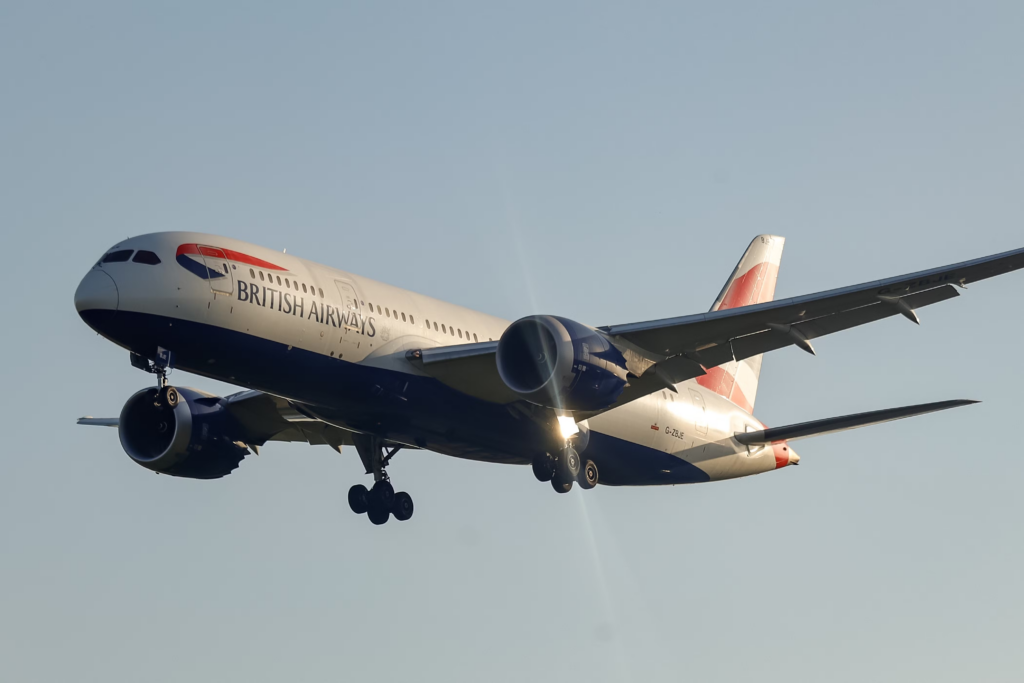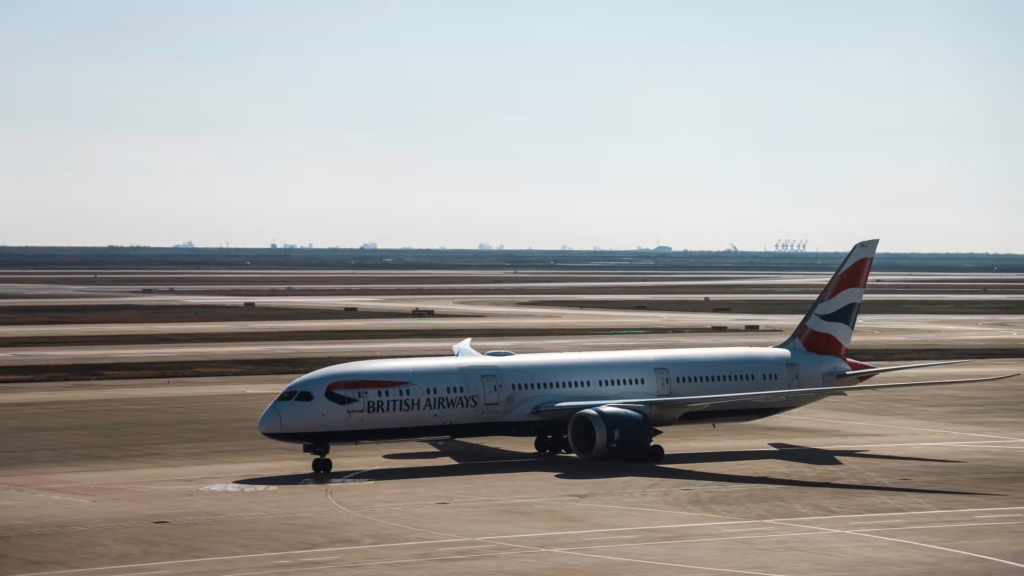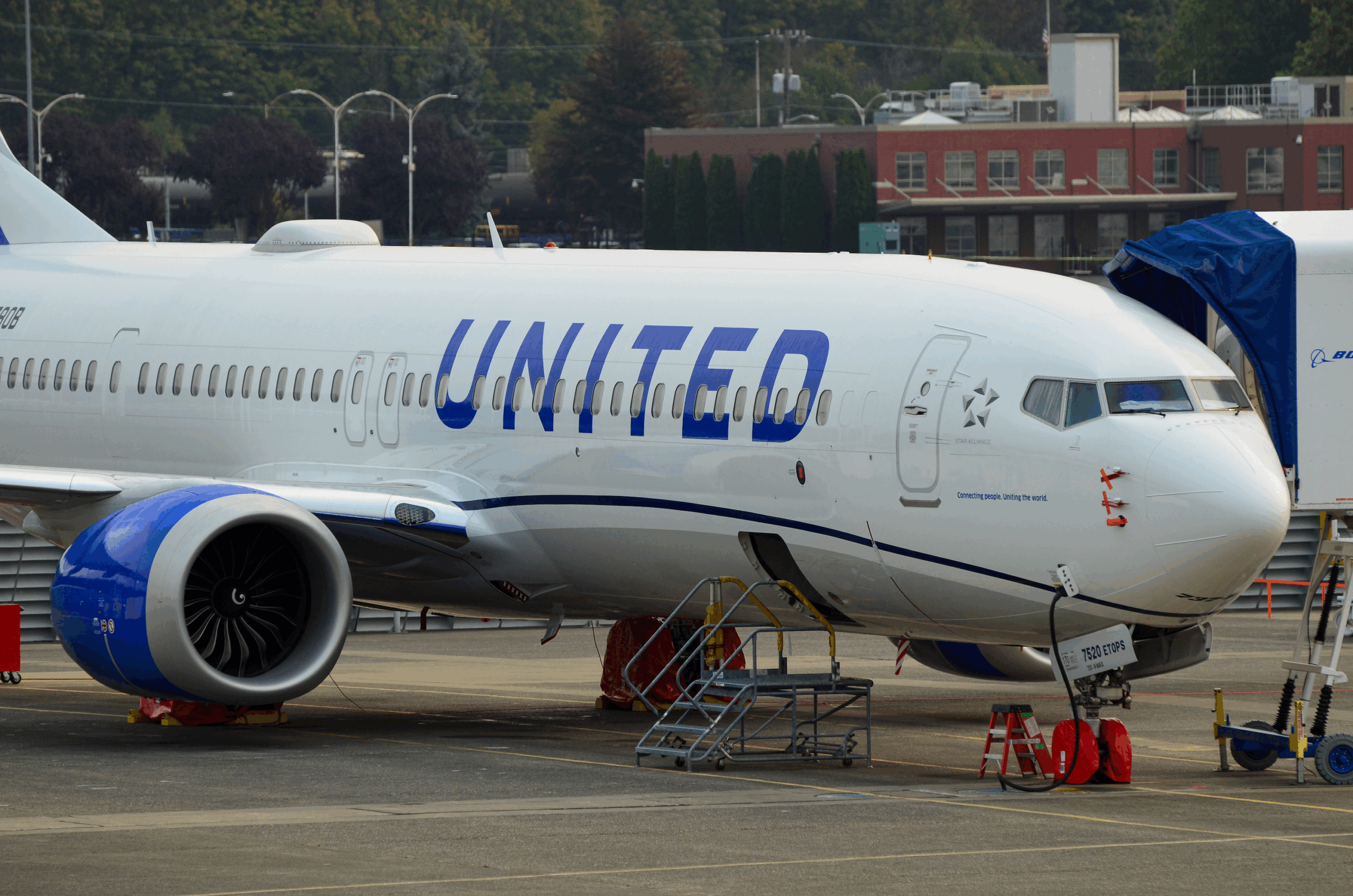British Airways has announced the suspension of its summer route connecting London Heathrow (LHR) and Abu Dhabi International Airport (AUH). This decision stems from ongoing issues with the Rolls-Royce Trent 1000 engines that power the airline’s Boeing 787 Dreamliners. Below, we explore the reasons behind this disruption, its broader implications, and alternative options for passengers.
Delays in Trent 1000 Engine Deliveries
At the heart of this issue lies a significant delay in delivering Rolls-Royce Trent 1000 engines and spare parts. These engines, designed specifically for the Boeing 787 family, are known for their efficiency, offering 20% better fuel economy than the older Boeing 767 models they replace. However, supply chain challenges have hampered production, leaving airlines like British Airways struggling to maintain their schedules.

British Airways issued a statement expressing frustration over these delays. “We’re disappointed to make further changes to our schedule as we continue to experience delays in engine and parts deliveries,” the spokesperson said. The airline added that resolving the issue would take time, impacting fleet availability and travel plans.
Broader Supply Chain Challenges
The Trent 1000 engine delays are not an isolated issue. Supply chain constraints, worsened by geopolitical tensions like Russia’s invasion of Ukraine, have created global disruptions. Ukraine supplies titanium, a critical material for aerospace manufacturing, and its scarcity has slowed production for companies like Rolls-Royce.
In response, Rolls-Royce has emphasized its commitment to resolving the crisis. “This is due to industry-wide supply chain constraints,” a spokesperson stated. Rolls-Royce claims it is taking decisive steps to prioritize resources and minimize disruptions, but challenges persist.
Impact on British Airways Operations
British Airways operates a substantial fleet of 41 Boeing 787 Dreamliners, including 11 Boeing 787-10s, 12 Boeing 787-8s, and 18 Boeing 787-9s. The carrier is also awaiting delivery of seven additional Boeing 787-10 aircraft, which are likely to face delays due to the ongoing engine issues.
This is not the first time British Airways has grappled with engine-related disruptions. Similar issues affected its Airbus A380 operations in recent years, forcing the airline to make substantial adjustments to its long-haul schedule.
To mitigate passenger inconvenience, British Airways is offering affected travelers rebooking options with partner airlines or full refunds. Despite these measures, the airline’s reputation for service reliability could face long-term impacts as these disruptions continue.

Alternative Travel Options for Passengers
Passengers affected by the suspended route still have direct travel options between London and Abu Dhabi. Etihad Airways, the national carrier of the United Arab Emirates, provides an alternative. Etihad deploys its Airbus A380 superjumbos on the route, accommodating 486 passengers across four classes: First, Business, Economy Plus, and Economy. These spacious aircraft offer an appealing alternative for those seeking to travel directly between the two cities.
The Road Ahead for British Airways
British Airways faces a complex challenge as it works to restore its full operational capacity. Collaboration with Rolls-Royce to address supply chain issues remains critical. Meanwhile, the airline must balance passenger expectations with operational constraints, ensuring minimal disruption to travel plans.
The suspension of the London Heathrow-Abu Dhabi route highlights the broader vulnerabilities in the aviation industry. As demand for air travel rebounds, supply chain resilience and fleet reliability will be key to avoiding similar setbacks in the future.
For now, affected passengers have alternatives, but the airline must resolve these issues swiftly to maintain its position as a leader in international travel.
Our Visitor






 Users Today : 32
Users Today : 32


